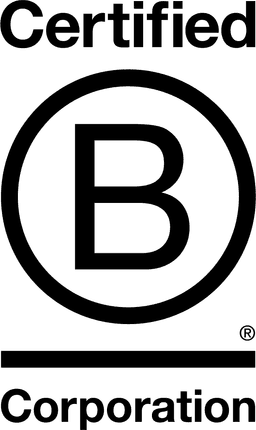

Conscious Brands

Alberta, Canada
January 2010
Management consultant - for-profits
Service with Minor Environmental Footprint
Canada
Conscious Brands is a firm that helps purpose-driven businesses be fit for the future. Since 2006, they have worked with leaders of the leaders including several B Corps such as Guayaki, Manitoba Harvest, Nature's Fare Markets, Fiddlehead Health and Nutrition and more. For these companies and the non-B Corps they have supported them be more conscious and discerning about their interconnected impact on individuals, teams, organizations, communities, society and the biosphere. These projects increase loyalty of employees and consumers, further strengthen brand/reputation and continue to make strong ROI (using business as a force for good). In working with leaders of leaders Conscious Brands also hosts a successful collaborative leadership development program called Spiral Table. This program brings these leaders together in a format where they can be vulnerable as a person and as a business so as to consciously grow as a leader and a business. The program is accountability-based and in its 8th year. Their Mission: To help support the transition or further thriving of 1,000 brands from the old economy to the new economy by 2020.
Overall B Impact Score
Governance 16.7
Governance evaluates a company's overall mission, engagement around its social/environmental impact, ethics, and transparency. This section also evaluates the ability of a company to protect their mission and formally consider stakeholders in decision making through their corporate structure (e.g. benefit corporation) or corporate governing documents.
What is this? A company with an Impact Business Model is intentionally designed to create a specific positive outcome for one of its stakeholders - such as workers, community, environment, or customers.
Workers 30.5
Workers evaluates a company’s contributions to its employees’ financial security, health & safety, wellness, career development, and engagement & satisfaction. In addition, this section recognizes business models designed to benefit workers, such as companies that are at least 40% owned by non-executive employees and those that have workforce development programs to support individuals with barriers to employment.
Community 32.3
Community evaluates a company’s engagement with and impact on the communities in which it operates, hires from, and sources from. Topics include diversity, equity & inclusion, economic impact, civic engagement, charitable giving, and supply chain management. In addition, this section recognizes business models that are designed to address specific community-oriented problems, such as poverty alleviation through fair trade sourcing or distribution via microenterprises, producer cooperative models, locally focused economic development, and formal charitable giving commitments.
Environment 15.2
Environment evaluates a company’s overall environmental management practices as well as its impact on the air, climate, water, land, and biodiversity. This includes the direct impact of a company’s operations and, when applicable its supply chain and distribution channels. This section also recognizes companies with environmentally innovative production processes and those that sell products or services that have a positive environmental impact. Some examples might include products and services that create renewable energy, reduce consumption or waste, conserve land or wildlife, provide less toxic alternatives to the market, or educate people about environmental problems.
Customers 28.5
Customers evaluates a company’s stewardship of its customers through the quality of its products and services, ethical marketing, data privacy and security, and feedback channels. In addition, this section recognizes products or services that are designed to address a particular social problem for or through its customers, such as health or educational products, arts & media products, serving underserved customers/clients, and services that improve the social impact of other businesses or organizations.
What is this? A company with an Impact Business Model is intentionally designed to create a specific positive outcome for one of its stakeholders - such as workers, community, environment, or customers.